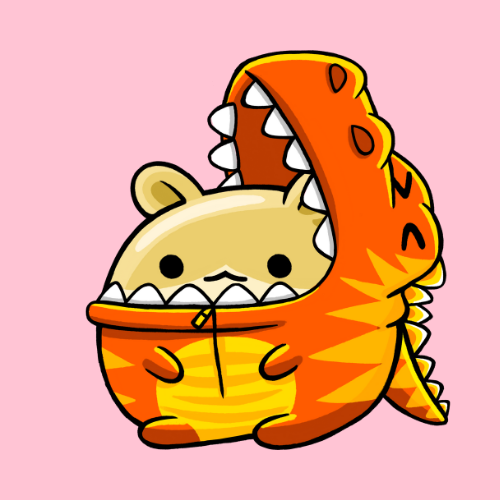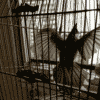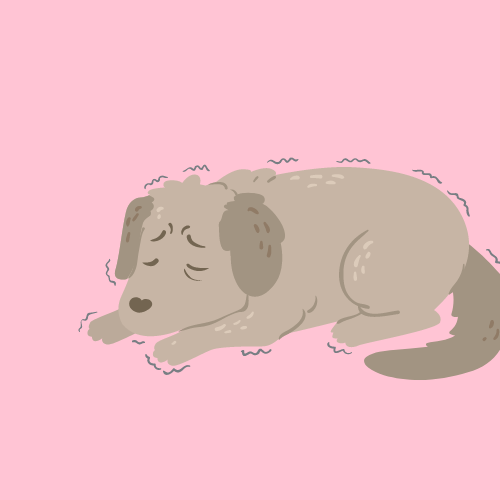Most parts or accessories in a hamster’s cage are made of plastic, and pet owners know that hamsters have strong teeth. You may be wondering whether or not hamsters are capable of biting through plastic?Hamsters can chew through plastic easily. Hamsters’ teeth develop continually; therefore, they must chew to keep them from getting too big. However, they should not chew through plastic because it harms their health.
Continue reading to understand better about this behavior.
Can Hamsters Chew Through Plastic?
If you’ve ever owned a hamster, you may have noticed it chewed through plastic cage pieces or toys. In the worst situation, the hamster may chew through the cage’s plastic and escape, which is not safe.
Despite their small size, hamsters have extremely strong teeth and a determined disposition. If your hamster decides to gnaw a hole in some plastic, it will continue to do so until it is satisfied.
However, the primary reason for your hamster’s tendency to gnaw and, quite possibly, totally chew through plastic is not due to poor conduct. Your hamster needs this because, like other rodents, its teeth keep growing.

These little creatures must chew to keep their teeth from overgrowing. However, even though your hamster can chew through a piece of plastic, this does not necessarily suggest that it is the most beneficial material for them.
When plastic breaks, the exposed fragments can be highly sharp, which increases the risk of damage to your pet. Plastic can be hard for your pet to chew and may harm its teeth rather than keep them at the proper length.
It can be aggravating when you discover that your pet has nibbled a hole in their plastic wheel or the plastic pieces of her cage, but you shouldn’t be furious at them for doing so. The most effective step to resolve this issue is to get your pet something less dangerous for them to chew on.
A piece of wood that has not been treated in any way is generally an ideal choice for your hamster to chew on. It won’t put them at risk while also helping them maintain healthy teeth.
If you would like, several wooden toys have been developed especially for hamsters. You can get these toys online and at the pet store near you; they are often extremely inexpensive.
Why Do Hamsters Eat Plastic?
Hamsters are innate chewers who eat fruits, vegetables, seed mixes, and pellets. However, beyond that, they also like tasting other things, including toys and even the wires used to cage them. Because of this, it is advised that hamster cages include toys that can be chewed or boredom breakers that require some form of chewing so that the hamsters have something to do when they are feeling unmotivated.
Hamsters often consume plastic, so there’s no reason to be alarmed. If they never show interest in chewing anything in their cages, this may indicate that they are sick, and you should probably be more worried about this behavior.
Reasons Your Hamster Chews Its Cage
The facts explain why your hamster persists in eating the plastic cage it lives in.
Small Cage Issue
Frequently, we are unable to recognize our pets’ suffering. The same thing may be happening with your hamster.
It’s possible that the hamster cages available for purchase in stores won’t have the space to keep them properly. In addition to being able to keep the hamster, it must also have sufficient room for it to move about freely and enjoy its surroundings. If the enclosure is too small, the hamster may chew on it to escape.
Growing Teeth
The fact that your hamster’s teeth are growing in is probably the most typical explanation for why it is chewing on its cage.
The hamster’s teeth are constantly developing new growth. It is believed that their four front teeth continue to develop throughout their entire lives. When teething, they may get itchy and chew on the cage to relieve it.
Stress or Anxiety
One possible explanation for your hamster chewing on its cage is anxiety and stress. Your hamster may feel worried and afraid if it does not feel comfortable with you or its environment. Therefore, as a method of self-soothing, the hamster will begin to chew on the cage’s plastic, much like we do with our fingernails.
So, let your hamster become used to you and your environment before putting it in the cage.
Attention and Curiosity
Hamsters are perpetually curious and want to learn and experience more. Therefore, your complete attention maybe if you strongly connect with your hamster. Now it will begin chewing on the cage’s bars to get your undivided attention.
Out of Habit
As said, hamsters chew their cages. In the beginning, this pattern is established with tiny steps.
However, if you ignore it and let them do whatever they want, they will eventually get into the habit of chewing on their cage if you do not pay attention to it. So, it’s hard to break your hamster from this habit, but it’s not impossible.
What Can I Do if My Hamster Chews Through Its Cage?
Your hamster probably won’t try to get out of its cage unless the environment inside is unpleasant. However, if they are successful in cutting a hole in a plastic enclosure, they will proceed to investigate their surroundings.

If there’s nothing else to chew on, your hamster may chew on the cage bars. Bar chewing is more probable when your hamster is upset, generally from a too-small cage.
There are various ways to stop a hamster from eating plastic.
- Can Hamsters Run Themselves to Death?
- Grapevine Wood for Hamsters
- Is Carefresh Bedding Safe for Hamsters?
- Use only wooden or chew-safe toys in a cage without plastic pieces, such as an aquarium.
- Make sure the enclosure is always tidy. Remove soiled bedding and clean the hamster cage every few weeks.
- Be careful to examine the cage frequently. A hamster can eat plastic, but not this fast. Your pet required a lot of time to chew, which suggests you weren’t paying attention. To avoid this, monitor your hamster and the cage.
- Replace any plastic your hamster chewed on as quickly as possible. If you’re buying a new cage, a glass tank eliminates the chance of chewing.
How to Stop Hamsters From Chewing Plastic Bin Cages
Hamsters are born natural chewers and spend much of their time in cages chewing on various objects. It may be hard to discourage them from the habit altogether, but there are ways to do so.
Boredom Breakers
They have the potential to operate as mental stimulants that keep hamsters completely engaged and reduce the likelihood that they will become bored. Food-based choices work well, but many alternatives can be helpful.
Toys
When hamsters have toys, they’re less likely to chew on cage components. To prevent kids from being bored with each set of toys too fast, we suggest having at least three to three and a half packs of toys that may be rotated every couple of days.
Rubbing Vinegar
Hamsters dislike the smell of vinegar and won’t chew on it. If you don’t have any vinegar on hand, you might use lemon as an effective replacement. Simply sprinkle some lemon juice on the area, and you can observe as your hamsters avoid going near it.

Veterinarian (DVM, MS) Content Writer, Blogger, and WordPress Developer. Working as a pet/animal/bird/fish/reptile/wildlife writer for the past 7 years on many renowned platforms.




